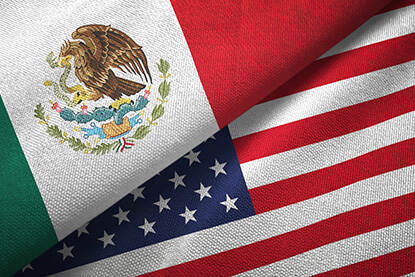|
(Washington, D.C., December 10, 2019) – U.S. Secretary of Agriculture Sonny Perdue issued the following statement after United States Trade Representative Robert Lighthizer and Speaker of the House Nancy Pelosi announced agreement on the U.S.-Mexico-Canada Agreement (USMCA):
“USMCA is a big win for American workers and the economy, especially for our farmers and ranchers. The agreement improves virtually every component of the old NAFTA, and the agriculture industry stands to gain significantly,” said Secretary Perdue. “President Trump and Ambassador Lighthizer are laying the foundation for a stronger farm economy through USMCA and I thank them for all their hard work and perseverance to get the agreement across the finish line. While I am very encouraged by today’s breakthrough, we must not lose sight – the House and Senate need to work diligently to pass USMCA by Christmas.”
Background:
USMCA will advance United States agricultural interests in two of the most important markets for American farmers, ranchers, and agribusinesses. This high-standard agreement builds upon our existing markets to expand United States food and agricultural exports and support food processing and rural jobs.
Canada and Mexico are our first and second largest export markets for United States food and agricultural products, totaling more than $39.7 billion food and agricultural exports in 2018. These exports support more than 325,000 American jobs.
All food and agricultural products that have zero tariffs under the North American Free Trade Agreement (NAFTA) will remain at zero tariffs. Since the original NAFTA did not eliminate all tariffs on agricultural trade between the United States and Canada, the USMCA will create new market access opportunities for United States exports to Canada of dairy, poultry, and eggs, and in exchange the United States will provide new access to Canada for some dairy, peanut, and a limited amount of sugar and sugar-containing products.
Earlier this year, nearly 1,000 American food and agriculture associations and companies announced their support for USMCA and the National Association of State Departments of Agriculture signed a letter to Congressional leadership urging them to ratify USMCA.
In September, all former U.S. Secretaries of Agriculture since President Reagan’s Administration announced support for USMCA. In a letter to Congressional leaders, former Secretaries John Block (Reagan), Mike Espy (Clinton), Dan Glickman (Clinton), Ann Veneman (W. Bush), Mike Johanns (W. Bush), Ed Shafer (W. Bush), and Tom Vilsack (Obama) underscored the importance of passing USMCA saying, “We need a strong and reliable trade deal with our top two customers for U.S. agriculture products. USMCA will provide certainty in the North American market for the U.S. farm sector and rural economy. We strongly support ratification of USMCA.”
Key Provision: Increasing Dairy Market Access
- America’s dairy farmers will have expanded market opportunities in Canada for a wide variety of dairy products. Canada agreed to eliminate the unfair Class 6 and 7 milk pricing programs that allowed their farmers to undersell U.S. producers.
Key Provision: Biotechnology
- For the first time, the agreement specifically addresses agricultural biotechnology – including new technologies such as gene editing – to support innovation and reduce trade-distorting policies.
Key Provision: Geographical Indications
- The agreement institutes a more rigorous process for establishing geographical indicators and lays out additional factors to be considered in determining whether a term is a common name.
Key Provision: Sanitary/Phytosanitary Measures
- The three countries agree to strengthen disciplines for science-based measures that protect human, animal, and plant health while improving the flow of trade.
Key Provision: Poultry and Eggs
- U.S. poultry producers will have expanded access to Canada for chicken, turkey, and eggs.
Key Provision: Wheat
- Canada agrees to terminate its discriminatory wheat grading system, enabling U.S. growers to be more competitive.
Key Provision: Wine and Spirits
- The three countries agree to avoid technical barriers to trade through non-discrimination and transparency regarding sale, distribution, labeling, and certification of wine and distilled spirits.
Source: United States Department of Agriculture
|
